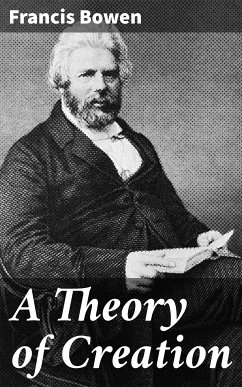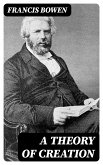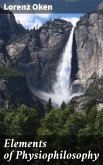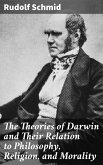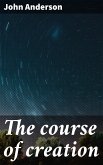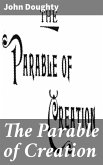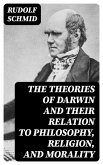In "A Theory of Creation," Francis Bowen presents a compelling examination of the interplay between science and religion in the context of creation theories. Bowen'Äôs style is characterized by rigorous logic and eloquent prose, engaging the reader in philosophical discourse that blends empirical evidence with theological inquiry. He meticulously critiques the prevailing scientific paradigms of his time while articulating a vision of creation that harmonizes reason and faith, situating his arguments within the broader literary context of 19th-century American thought, which sought to reconcile Enlightenment rationalism with the burgeoning field of natural sciences. Bowen, a prominent scholar and a contemporary of figures such as Ralph Waldo Emerson and Louis Agassiz, draws upon his background in both philosophy and theology to explore the profound questions of existence and the nature of the universe. His insights reflect an intellectual milieu grappling with the implications of Darwinian evolution, demonstrating his commitment to fostering dialogue between disparate fields. Bowen'Äôs lived experience as an educator and thinker deeply informed his perspective, inspiring him to challenge both scientific materialism and rigid religious dogma. Readers interested in the philosophical underpinnings of creation theory will find Bowen'Äôs work invaluable, as it provides a nuanced perspective that encourages critical thinking and reflection. This book is essential for those who wish to explore the origins of existential thought and the synthesis of science and spirituality.
Dieser Download kann aus rechtlichen Gründen nur mit Rechnungsadresse in A, B, BG, CY, CZ, D, DK, EW, E, FIN, F, GR, H, IRL, I, LT, L, LR, M, NL, PL, P, R, S, SLO, SK ausgeliefert werden.

